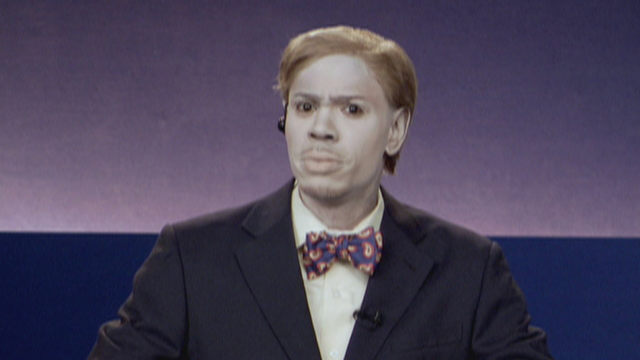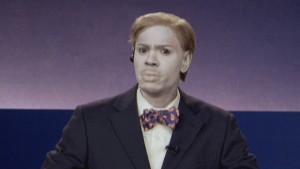Comedy, Context and the Video of the Day
by Isaac Butler
Last week, writer and humorist Jazmine Hughes took the pages (screens?) of the recently revamped New Republic to talk about how context and comedy matter, and how changing the teller of a joke changes the meaning of the joke:
But what most white-people jokes have in common is that they are not about white people per se. Instead, they are about inequalities between whites and other races. “What is the scariest thing about a white person in prison?” a comedian asks. “You know he did it.” Har har! Except you only got the punchline because you’re aware of the problem of prejudicial prosecutions. In sum: “LOL, RACISM.”
In rarer cases where white people are the actual target, the joke tends to zoom in on a certain sector of the population—hippies, rednecks, anyone who is both white and poor—and rests on observations about socioeconomic circumstances, not the disadvantages posed merely by having a certain color skin. So when a white person tells any white-people joke, the humor can go from subverting whites’ status to rubbing it in. The jokes themselves aren’t necessarily less funny; it’s just that the bitter pill goes down easier when not delivered by someone benefiting from the privilege they’re trying to lampoon.
All of which is to say that the teller of white-people jokes bears a special responsibility. White-people jokes don’t punch up; at best, they punch sideways, but usually, they punch down. This doesn’t mean that white people can never tell them. But I do believe that anyone who tells a white-person joke really has to understand what they’re doing. “Jokes have power to be tools to dismantle oppression, to prove racism, but also to reinforce racism and privilege,” says Keisha Zollar, an African American comedian with the Upright Citizens Brigade. “Is the comedian telling the joke aware of that power?”
Hughes is talking about the phenomenon of White people making fun of other White people, generally using joke structures pioneered by people of color to do it. She raises many fascinating questions here, and it’s well worth reading the whole thing.
This brings us to today’s Video of the Day. Perhaps no major sketch of the last 15 years is more dependent on context than Dave Chapelle’s legendary reparations sketch, in which Black people finally get reparations and, well, spend a lot of the money in rather stereotypical ways.
Context is what makes this sketch work. If you performed the same sketch on a White comedy show (or even, probably, a comedy show with just a White host) it would be (rightly) seen as deeply offensive, both relying on and perpetuating harmful racial stereotypes. But in Chapelle’s hands, the sketch becomes something else, and something more uncomfortable, a sketch that takes stereotypes to their logical extremes in order to lampoon how absurd they really are.
Of course, not everyone viewing the sketch got that, something Chapelle himself voiced frustration with after he quit his own show. The top comment on this youtube video is, tellingly, “Its funny cause this is what would actually happen.”
Here is the sketch, for those who haven’t seen it:


